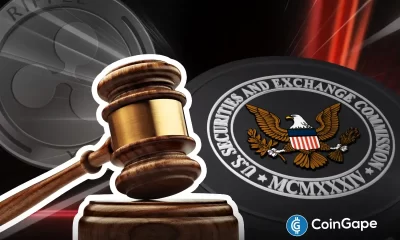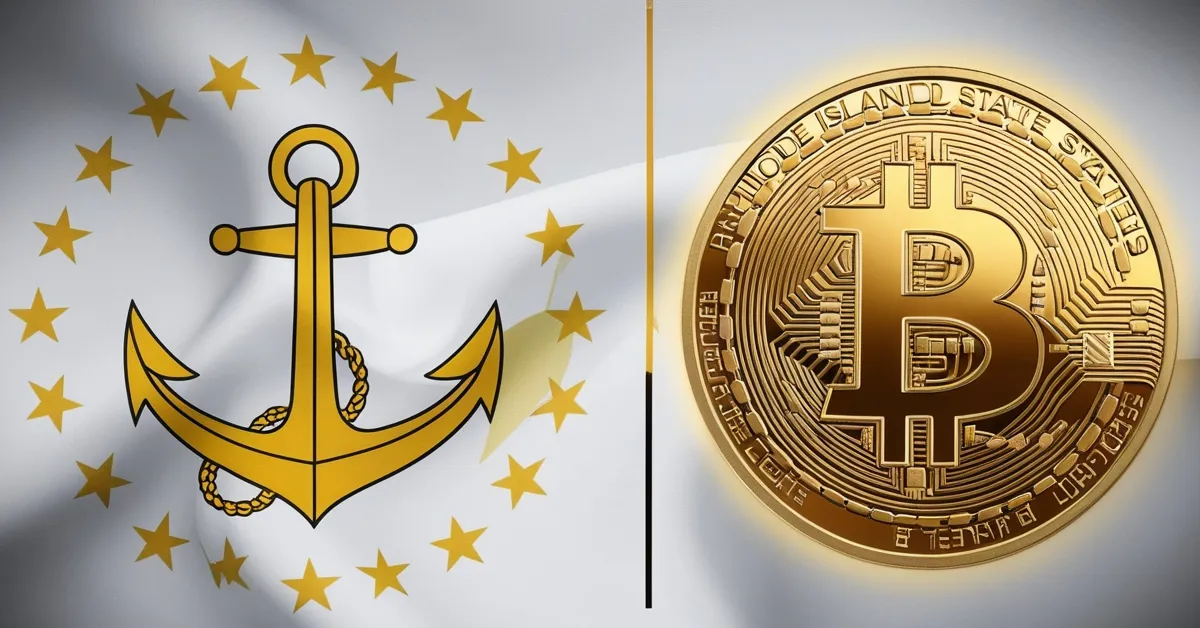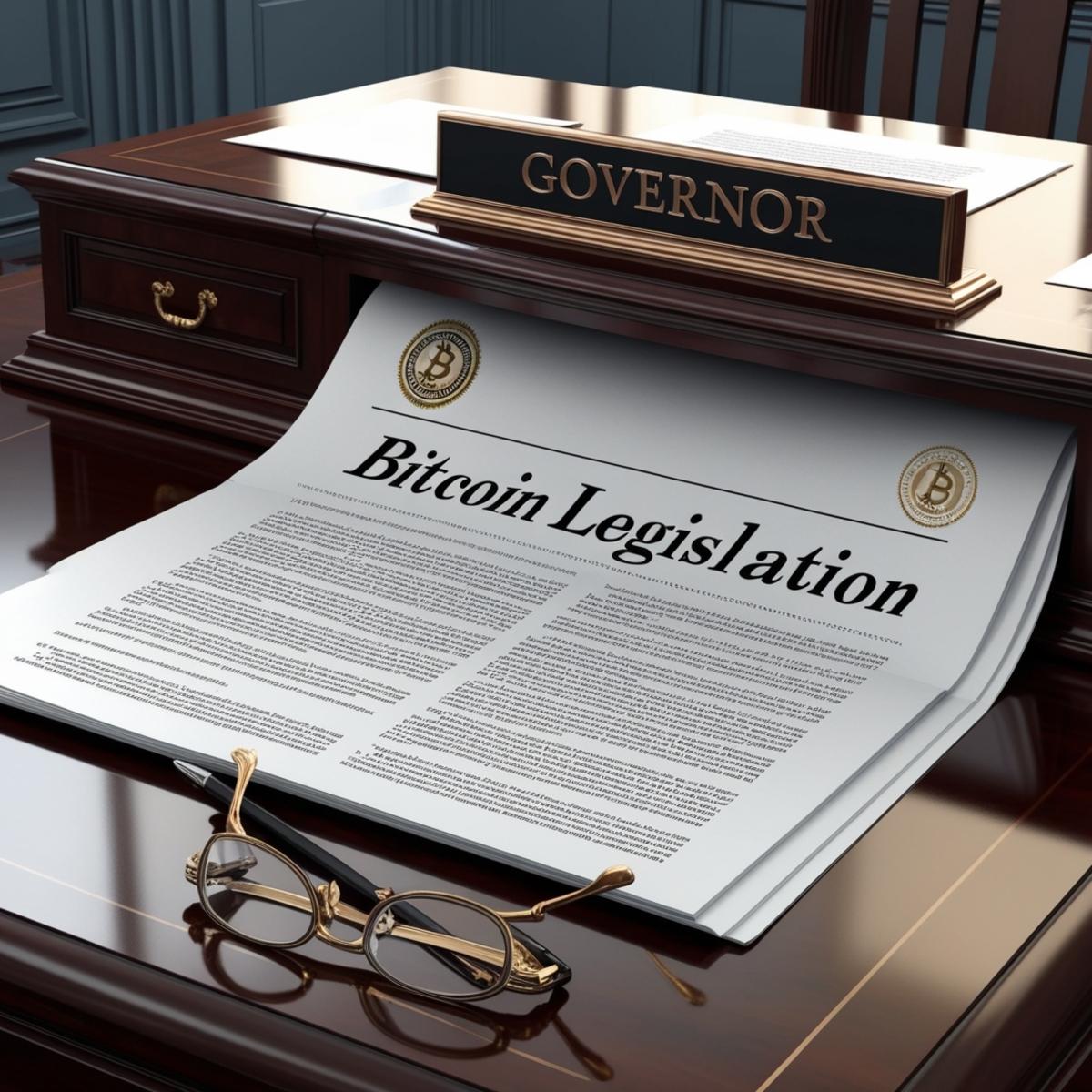legal
Pro Crypto, Anti Privacy: Will Trump Free Samourai?
Published
3 days agoon
By
admin
Last month, the Treasury lifted sanctions on Tornado Cash. In response, many rekindled their calls for the Trump administration to drop the charges against Keonne Rodriguez and William Lonergan Hill, the developers of Samourai Wallet who are currently being prosecuted in the Southern District of New York.
What many appear to have missed is that the Treasury’s sanctions reversal for Tornado Cash also revealed the Treasury’s stance on privacy services. And it isn’t looking good.
Tornado Cash’s removal from OFAC’s SDN list followed a lawsuit by Tornado Cash users in a Texas District Court case that has become known as Van Loon v. US Department of the Treasury, in which it was argued that the sanctioning of the software was unlawful and violated the right to free speech.
The lawsuit went to appeal in the Fifth Circuit, where three judges ruled that sanctioning a software like Tornado Cash was indeed unlawful, as OFAC’s SDN list was reserved for businesses, foreign nationals, and property – of which Tornado Cash is neither.
The Fifth Circuit, in turn, directed the Texas District Court to grant the plaintiff’s motion for partial summary judgement, which would constitute a binding court order that software like Tornado Cash cannot be sanctioned by the US Government under current sanction laws.
Now the Treasury is fighting back, in attempts to avert the judgement that would strip the agency of its powers to sanction immutable privacy software, by arguing that a judgement is not needed because Tornado Cash has been removed from the OFAC list. But without the judgement, the agency could continue to sanction software that works like Tornado Cash, and even re-sanction Tornado Cash itself.
The sanctions reversal on Tornado Cash has little to do with the prosecution of Samourai Wallet developers, as neither are charged with sanctions evasion.
But the criminal prosecution of Tornado Cash developer Roman Storm is extremely important to their case, as it may set precedent for the prosecution of Rodriguez and Hill, who have been charged with conspiracy to operate an unlicensed money transmitter and conspiracy to commit money laundering.
Both Tornado Cash and Samourai Wallet are purely non-custodial software projects, which have long been understood to be exempt from falling under anti-money laundering frameworks usually applied to banks. If Storm is found guilty in July, the Government would have a much easier time to successfully prosecute the two Bitcoin developers as well.
While many were hopeful that the new administration would put an end to the former administration’s witch hunt on cryptocurrency developers, it seems that Trump’s Treasury is just as unfavorable to the development of privacy code.
As CoinCenter pointed out at the end of last year, a pro-crypto administration does not necessarily equal a pro-privacy and pro-financial freedom administration. It seems that we are now witnessing what this means: while lawsuits are being dropped against “crypto casinos” like Coinbase and Uniswap, privacy software developers like Rodriguez and Hill continue to face the threat of decades in jail.
The Treasury appears to reason these prosecutions with their hardline stance against terrorist financing and cyber crime. As the agency wrote in the announcement of Tornado Cash’s sanctions reversal:
“Treasury remains committed to using our authorities to expose and disrupt the ability of malicious cyber actors to profit from their criminal activities through the exploitation of digital assets and the digital assets ecosystem.”
In what appears to be a first, the Treasury also issued a warning for users of privacy services, stating that “U.S. persons should exercise caution before engaging in transactions that present such risks.”
In an email addressing the reversal of sanctions against Tornado Cash, blockchain surveillance firm Chainalysis appears to echo the Treasury’s sentiment, writing that “organizations with exposure to [mixer] addresses should seek legal counsel on their responses and obligations to OFAC.”
The messaging seems clear: while it is not officially illegal to use or deal with mixing services, the Treasury appears to attempt to keep all options open to pursue charges against persons involved with privacy services in the future.
As I have argued in several Bitcoin Magazine print articles, this stance should not be a surprise, and is rather an immediate consequence of integrating digital assets into US regulatory frameworks. The more important Bitcoin becomes for the Government, the more important it will be to root out any conduct deemed illicit or criminal.
Treasury Secretary Scott Bessent has now argued as much in Tornado Cash’s sanctions reversal, stating that “securing the digital asset industry from abuse by North Korea and other illicit actors is essential to establishing U.S. leadership and ensuring that the American people can benefit from financial innovation and inclusion.”
While North Korea allegedly relies on cryptocurrency financing for its operations, the overall share of illicit funds within the cryptocurrency space is minimal, placed at a mere 0.14% of all on-chain transactions by Chainalysis itself.
At the same time, the reasons for people to use privacy services are numerous. As every transaction is visible on-chain, privacy services help people keep their transaction histories and net worth private, which in turn protects their physical security.
As Jameson Lopp regularly highlights in his physical Bitcoin attacks repository, having information about your Bitcoin public may result in violent home invasions, kidnappings, and in some cases, murder.
The Government’s continued crackdown on privacy services does not seem proportionate to eliminating 0.14% illicit actors, but it seems that the Trump administration is in no hurry to do the right thing to protect Americans and #FreeSamourai.
This is a guest post by L0la L33tz. Opinions expressed are entirely their own and do not necessarily reflect those of BTC Inc or Bitcoin Magazine.
Source link
You may like


Bitcoin Holds The Line—But Can It Bounce Back or Break Lower?


Markets close lower as Trump notes tariff problems and Fed flags recession risk


Here’s Why Ethereum (ETH) Is Underperforming This Market Cycle, According to Analyst Benjamin Cowen


US SEC Division Releases Guidance On Disclosure Requirements For Crypto Securities


CryptoPunks NFT Sells for $6 Million in Ethereum—At a $10 Million Loss


SEC drops suit against Helium for alleged securities violations
Bitcoin
Rhode Island Bill Would Allow State Residents Spend $10,000 Monthly In Bitcoin Tax Free
Published
1 week agoon
April 1, 2025By
admin
Bill S. 0451, which was introduced to the Rhode Island Senate last month, permits the state’s residents and businesses to make up to 10 payments in bitcoin valued at less than $1,000 per month (or sell the equivalent amount) without being subject to state capital gains taxes.
The bill is an amendment to existing state income tax laws, and the exact language in the proposed legislation is as follows:
“Any sale of [b]itcoin by an individual or business in Rhode Island shall be exempt from state taxation if the total value of sales is less than one thousand dollars ($1,000) per diem. The limit of the state tax exempt [b]itcoin transaction shall not exceed ten (10) sales per a thirty (30) day cycle.”
And the bill defines a “sale of [b]itcoin” as “any transaction in which [b]itcoin is sold or exchanged for another form of value, such as fiat currency or other physical or digital assets.”
The bill also clarifies that this exemption only applies at the state level and that it doesn’t affect federal tax obligations.
Under the bill, individuals and businesses who engage with these types of tax-exempt bitcoin transactions are responsible for keeping records of these transactions, including the total value of sales per day, and should be prepared to provide these records to the Rhode Island’s department of revenue for audit or compliance purposes.
In a slide deck prepared by the Rhode Island Blockchain Council that was shared with Bitcoin Magazine, Chris Perrotta, Chairman of the Council, wrote that the passing of Bill S. 0451 would help to reduce friction for digital asset payments.
He stated that “current tax implications of spending BTC hamper its utility for Rhode Island citizens and stifle economic activity.”
Perrotta also noted that the passing of this bill would stimulate blockchain-based economic activity in the state, making Rhode Island one of the states at the forefront of this technology.
What is more, he also proposed that small businesses accept bitcoin for products and services as a means to stimulate economic growth.
Thus far, no other U.S. states have introduced comparable bills.
At the federal level, the only bill that has proposed something similar is the Lummis-Gillibrand “Responsible Financial Innovation Act”, which provides a de minimus tax exemption on bitcoin transactions valued up to $200.
Source link
legal
US Treasury Removes Tornado Cash From OFAC Sanctions List
Published
3 weeks agoon
March 22, 2025By
admin
The Department of Treasury has lifted Sanctions on Tornado Cash, the Ethereum based smart contract mixer, following a series of legal defeats and administrative challenges.
“Based on the Administration’s review of the novel legal and policy issues raised by use of financial sanctions against financial and commercial activity occurring within evolving technology and legal environments, we have exercised our discretion to remove the economic sanctions against Tornado Cash as reflected in Treasury’s Monday filing in Van Loon v. Department of the Treasury,” the Treasury Department stated.
Quick Overview of the Tornado Cash Story
Tornado Cash was launched in 2019 as a decentralized protocol to enhance transaction privacy on Ethereum.
In August 2022, the mixer was added to the Office of Foreign Assets Control (OFAC) list, which includes sanctioned individuals and entities. U.S. law enforcement alleged that Tornado Cash facilitated over $7 billion in money laundering, including funds linked to North Korea’s Lazarus Group.
This led to a ban on U.S. persons using the service and legal action against its co-founders, Roman Storm and Roman Semenov, who were indicted in 2023 for money laundering tied to over $1 billion in transactions.
Six Tornado Cash users, backed by Coinbase, sued the Treasury, challenging the sanctions.
A Texas federal court ruled in January 2025 that the smart contracts couldn’t be sanctioned, a decision upheld by the Fifth Circuit in November 2024.
Today the Treasury officially lifted the sanctions, citing evolving legal and technological considerations, though it expressed concern about ongoing illicit crypto activities and reinforced its intent and authority to continue DPRK sanctions.
Tension Continues
The Treasury nevertheless reinforced its intent to enforce sanctions against Democratic People’s Republic of Korea (DPRK), an ongoing source of geopolitical tension given the recent $1 billion+ hack from Bybit argued to have been executed by Lazarous, a hacking group with DRKP ties.
“We remain deeply concerned about the significant state-sponsored hacking and money laundering campaign aimed at stealing, acquiring, and deploying digital assets for the Democratic People’s Republic of Korea (DPRK) and the Kim regime,” the agency stated.
“Treasury will continue to monitor closely any transactions that may benefit malicious cyber actors or the DPRK, and U.S. persons should exercise caution before engaging in transactions that present such risks.”
Although the lifted sanction appears to be good news for financial privacy software developers, it is too early to tell what this means for the Bitcoin and crypto industry in general, or whether it will have an effect on upcoming court cases like those against the Samurai Wallet developers.
“Digital assets present enormous opportunities for innovation and value creation for the American people,” said Secretary of the Treasury Scott Bessent. “Securing the digital asset industry from abuse by North Korea and other illicit actors is essential to establishing U.S. leadership and ensuring that the American people can benefit from financial innovation and inclusion.”
Source link
bill
Kentucky Senate Passes Bill Protecting Bitcoin Self-Custody Rights
Published
4 weeks agoon
March 14, 2025By
admin
Yesterday evening, the Kentucky Senate unanimously passed a bill aimed at protecting Bitcoin self-custody rights and digital asset mining operations. With a decisive 37-0 vote, the legislation, titled AN ACT relating to blockchain digital assets (HB 701), now moves to the Governor’s desk for final approval.
NEW:
Kentucky Senate passes bill that will protect Bitcoin self custody rights with 0 votes against it.
The bill now heads to the Governors desk. pic.twitter.com/HPciWIgpZO
— Bitcoin Magazine (@BitcoinMagazine) March 14, 2025
Sponsored by Representatives Adam Bowling and T.J. Roberts, the bill affirms the right of individuals to self-custody digital assets through self-hosted wallets. Additionally, it prevents local zoning laws from discriminating against digital asset mining businesses, ensuring that Bitcoin miners can operate freely within the state.
The bill outlines several key provisions, including:
- Protection for Bitcoin self-custody: Individuals have the legal right to use and store digital assets in self-hosted wallets.
- Prohibition of discriminatory zoning laws: Local governments cannot impose zoning changes that unfairly target digital asset mining businesses.
- Exemptions from money transmitter licensing: Home Bitcoin miners and digital asset mining businesses are exempt from Kentucky’s money transmitter requirements.
- Clarification of securities laws: Digital asset mining and staking as a service are explicitly not classified as securities under Kentucky law.
@Rawlings4Ky is carrying HB 701 which protects the use of digital assets and self-hosted wallets, prevents local zoning discrimination against digital asset mining businesses, and establishes guidelines for blockchain node operations. It shields node operators and staking… pic.twitter.com/1crnd8mqQS
— KY Senate Majority (@KYSenateGOP) March 13, 2025
After passing through the Kentucky House with a 91-0 vote on February 28, 2025, the bill moved swiftly through the Senate. The March 13 vote saw full bipartisan support, with 37 senators voting in favor, zero opposed, and one not voting.
The legislation now awaits the Governor’s signature, which would officially enshrine Bitcoin self-custody protections and digital asset mining rights into Kentucky law. If signed, Kentucky will become one of the more Bitcoin-friendly states in the country, setting a precedent for other states to follow.
Source link

Bitcoin Holds The Line—But Can It Bounce Back or Break Lower?

Markets close lower as Trump notes tariff problems and Fed flags recession risk

Here’s Why Ethereum (ETH) Is Underperforming This Market Cycle, According to Analyst Benjamin Cowen

US SEC Division Releases Guidance On Disclosure Requirements For Crypto Securities

CryptoPunks NFT Sells for $6 Million in Ethereum—At a $10 Million Loss

SEC drops suit against Helium for alleged securities violations

Tokenized Gold Nears $2B Market Cap as Tariff Fears Spark Safe Haven Trade

Ross Ulbricht To Speak At Bitcoin 2025

Solana Eyes $200 Target As It Gains Momentum – Recovery Could Mirror 3-Month Downtrend

BTC-denominated insurance firm meanwhile secures $40m in VC funding

‘You Want To Own the Most Hated Thing’ – Arthur Hayes Says Ethereum Set To Outrun Solana As Memecoin Craze Fades

Crypto Braces for a Hidden $4.5 Trillion Catalyst for Bitcoin, Ethereum, Cardano, XRP Price

Block Agrees to $40M NYDFS Penalty Over Lackluster Compliance Program

Top Bitcoin miners produced nearly $800M of BTC in Q1 2025

Tariffs, Trade Tensions May Be Positive for Bitcoin (BTC) Adoption in Medium Term: Grayscale

Arthur Hayes, Murad’s Prediction For Meme Coins, AI & DeFi Coins For 2025

Expert Sees Bitcoin Dipping To $50K While Bullish Signs Persist

Aptos Leverages Chainlink To Enhance Scalability and Data Access

Bitcoin Could Rally to $80,000 on the Eve of US Elections

Crypto’s Big Trump Gamble Is Risky

Sonic Now ‘Golden Standard’ of Layer-2s After Scaling Transactions to 16,000+ per Second, Says Andre Cronje

Institutional Investors Go All In on Crypto as 57% Plan to Boost Allocations as Bull Run Heats Up, Sygnum Survey Reveals

Ripple-SEC Case Ends, But These 3 Rivals Could Jump 500x

Has The Bitcoin Price Already Peaked?

A16z-backed Espresso announces mainnet launch of core product

The Future of Bitcoin: Scaling, Institutional Adoption, and Strategic Reserves with Rich Rines

Xmas Altcoin Rally Insights by BNM Agent I

Blockchain groups challenge new broker reporting rule

I’m Grateful for Trump’s Embrace of Bitcoin

Trump’s Coin Is About As Revolutionary As OneCoin
Trending

 24/7 Cryptocurrency News5 months ago
24/7 Cryptocurrency News5 months agoArthur Hayes, Murad’s Prediction For Meme Coins, AI & DeFi Coins For 2025

 Bitcoin3 months ago
Bitcoin3 months agoExpert Sees Bitcoin Dipping To $50K While Bullish Signs Persist

 24/7 Cryptocurrency News3 months ago
24/7 Cryptocurrency News3 months agoAptos Leverages Chainlink To Enhance Scalability and Data Access

 Bitcoin5 months ago
Bitcoin5 months agoBitcoin Could Rally to $80,000 on the Eve of US Elections

 Opinion5 months ago
Opinion5 months agoCrypto’s Big Trump Gamble Is Risky

 Altcoins2 months ago
Altcoins2 months agoSonic Now ‘Golden Standard’ of Layer-2s After Scaling Transactions to 16,000+ per Second, Says Andre Cronje

 Bitcoin5 months ago
Bitcoin5 months agoInstitutional Investors Go All In on Crypto as 57% Plan to Boost Allocations as Bull Run Heats Up, Sygnum Survey Reveals

 Price analysis5 months ago
Price analysis5 months agoRipple-SEC Case Ends, But These 3 Rivals Could Jump 500x


